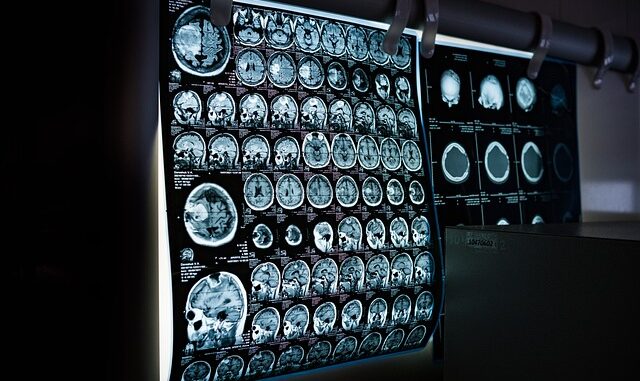
Summary
AI and robotics are revolutionizing healthcare, from diagnostics and treatment to drug discovery and administrative tasks. They offer improved accuracy, efficiency, and personalized care, while also addressing challenges like rising costs and resource allocation. However, ethical considerations and responsible implementation are crucial for maximizing benefits and ensuring equitable access.
Start with a free consultation to discover how TrueNAS can transform your healthcare data management.
** Main Story**
AI and robotics are rapidly transforming the healthcare landscape, impacting everything from diagnostics and treatment to drug discovery and administrative tasks. These technologies offer the potential for improved accuracy, efficiency, and personalized care, while also addressing challenges such as rising costs and resource allocation. This article explores the multifaceted ways AI and robotics are reshaping healthcare and discusses the importance of ethical considerations and responsible implementation for maximizing benefits and ensuring equitable access for all.
AI-Powered Diagnostics and Treatment
AI algorithms are enhancing medical imaging analysis, enabling faster and more accurate diagnoses of conditions like cancer, sepsis, and bone fractures. AI-powered clinical decision support systems assist healthcare professionals by providing real-time insights, suggesting diagnoses, and recommending treatment options based on vast amounts of patient data. This can lead to earlier interventions, less invasive procedures, and improved patient outcomes. AI is also playing a crucial role in personalized medicine by tailoring treatment plans based on individual patient characteristics, including genetic information and lifestyle factors. This approach optimizes treatment efficacy and minimizes adverse effects.
Revolutionizing Drug Discovery and Development
AI is accelerating the drug discovery process by identifying potential drug candidates, predicting their interactions with biological systems, and optimizing clinical trials. This reduces the time and cost associated with bringing new drugs to market. AI-driven predictive analytics helps identify individuals at risk of developing certain diseases, enabling proactive interventions and preventative strategies. This can have a significant impact on public health by mitigating the spread of diseases and reducing their economic burden.
Robotics in Healthcare: Enhancing Surgical Precision and Care
Robotic surgery systems provide surgeons with enhanced dexterity, precision, and control, allowing for minimally invasive procedures with smaller incisions, reduced recovery times, and fewer complications. Robots are also used in other healthcare settings for tasks such as disinfecting rooms, delivering supplies, and assisting with rehabilitation exercises. This frees up healthcare professionals to focus on patient care and improves overall efficiency.
Transforming Healthcare Operations and Administration
AI can automate administrative tasks like patient scheduling, billing, and electronic health records management, reducing costs and streamlining workflows. This frees up valuable time for healthcare professionals to focus on direct patient care, alleviating burnout and enhancing job satisfaction. AI-powered chatbots and virtual assistants provide patients with 24/7 access to information and support, improving patient engagement and adherence to treatment plans.
Ethical Considerations and Responsible Implementation
As AI and robotics become more integrated into healthcare, it’s essential to address ethical considerations such as data privacy, algorithmic bias, and the potential displacement of healthcare workers. Transparency, accountability, and ongoing evaluation are vital to ensure that these technologies are used responsibly and equitably. Policymakers, healthcare professionals, and technology developers must collaborate to establish guidelines and regulations that promote the safe and ethical development and deployment of AI and robotics in healthcare. Education and training programs are also necessary to equip healthcare professionals with the skills and knowledge to effectively utilize these tools.
The Future of Healthcare
AI and robotics hold immense promise for the future of healthcare. As these technologies continue to evolve, we can expect even more sophisticated applications, including AI-powered personalized preventative care, real-time disease monitoring, and advanced robotic surgical techniques. By embracing these innovations responsibly and addressing the associated challenges, we can leverage the transformative power of AI and robotics to create a healthier and more equitable healthcare system for all.


The discussion on ethical considerations is paramount. How can we ensure diverse datasets are used to train AI, mitigating algorithmic bias and promoting equitable access to AI-driven healthcare solutions for all populations?
That’s a fantastic point! Diverse datasets are indeed crucial. Beyond just data diversity, we also need diverse teams developing and evaluating these AI systems. Different perspectives can help identify and mitigate potential biases that might otherwise be overlooked. This collaborative approach is essential for ethical AI in healthcare.
Editor: MedTechNews.Uk
Thank you to our Sponsor Esdebe
AI-powered diagnoses AND robotic surgery? Sounds like the future is now! But, I wonder, will robots eventually be able to argue with insurance companies on our behalf? Asking for a friend…who may or may not be a cyborg.
That’s hilarious! The insurance angle is something else. Maybe AI could analyze policy loopholes better than we can! Imagine AI negotiating pre-authorizations – we might actually get some approvals! Thanks for adding some humor to the conversation.
Editor: MedTechNews.Uk
Thank you to our Sponsor Esdebe
Given the potential for AI and robotics to automate administrative tasks, how might this shift impact the roles and required skill sets of current healthcare administrators?
That’s a crucial question! It seems likely healthcare administrators will need to develop stronger data analysis and tech management skills. Perhaps roles will evolve to focus more on strategic oversight and ethical AI implementation, ensuring patient-centered care remains a priority. What are your thoughts?
Editor: MedTechNews.Uk
Thank you to our Sponsor Esdebe
The point about AI handling administrative tasks is interesting. Standardizing processes with AI could also create opportunities to audit and optimize workflows, potentially revealing inefficiencies currently hidden within existing systems.